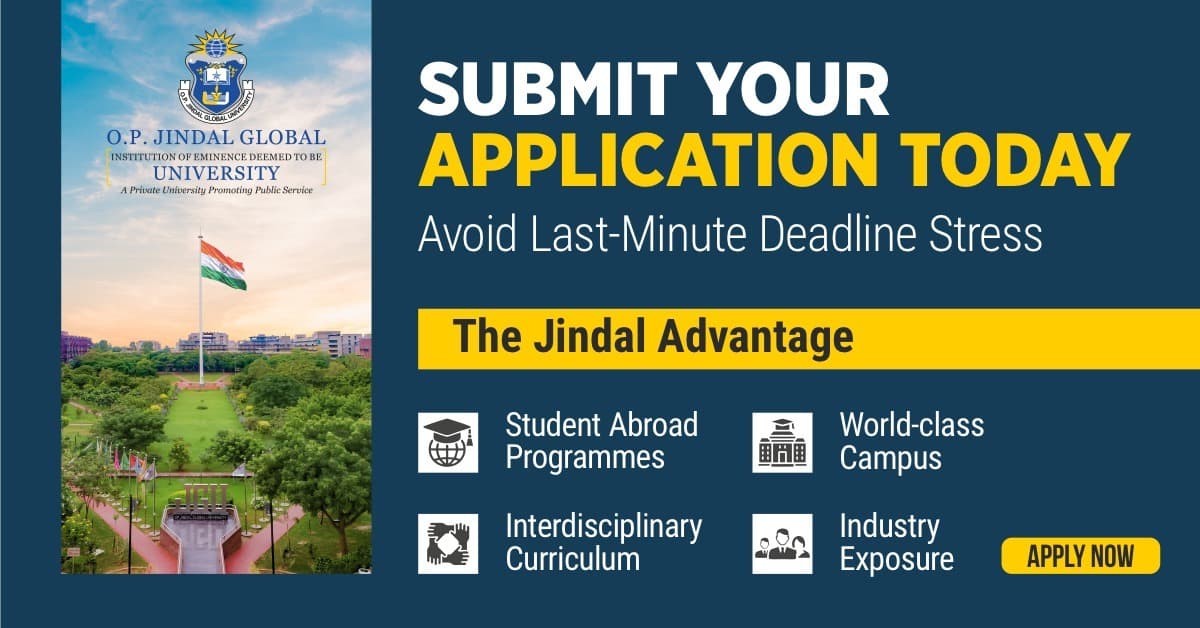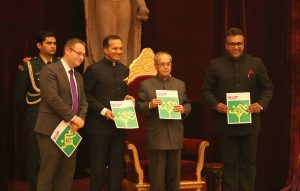Jindal Institute of Behavioural Sciences (JIBS), of O.P Jindal Global University (JGU) recently hosted the 9th International Forum on Crime and Criminal Law in the Global Era (IFCCLGE) on 10 and 11th December, 2017.
Being held in India for the very first time, the global forum was inaugurated by Justice Ashwani Kumar Mishra and Justice Rajeev Misra from Allahabad High Court. Over 70 delegates from all over the world participated in the conference based on the theme ‘Perspectives on Refugees and Global Migration.’
Speaking about the Conference and its importance in the international arena Dr Sanjeev P Sahni, Principal Director, JIBS said: “We are honoured to be hosting the IFCCLGE forum for the first time in India. The event has witnessed diverse attendance from across the world, and has been fruitful in bringing together experts on effective policing, governance, policy making and media control. I hope the government and social sciences academia will consider and use the discussions from this forum to form a better balanced society with equal sharing of rights and resources.”
The deliberations, this year, attracted discussions on various aspects of the global migrant movement. While the humanitarian responsibility on States to provide refuge and allow refugees to seek a good quality of life was highlighted, the Forum also brought to light the challenges faced by the State to ensure integration into indigenous communities and provide effective policing in the face of challenges such as hate speech and migration associated crimes such as human trafficking, money laundering, terrorism and others. Dolores Madueno, Associate Public Defender, National Defence ministry, Argentina remarked: “The way to move forward begins with the visualization of the conflict and with the discussion about how to manage the facts around the subject. The failures are mostly regarding the practice of the judicial system, than the lack of legal regulations.”
Ivana Todevska, President at TIM Institut, Macedonia felt that “political authority and influence of the international political scene is very important in handling the migrant crisis in Europe, which would help to find a faster and more practical resolution with the help of other countries.”
Speaking on behalf of India, panelist Ruchi Sinha from Tata Institute of Social Sciences emphasized that “most of migrant related crimes arise as a result of polarization of the host society based on existing or artificially created prejudices, cultural biases such as race, religion, ethnicity, class, caste and socio-political circumstances between countries. Unless the State enables integration of the migrant community in all forms, the public’s perception of refugees and immigrants is unlikely to change from otherness to acceptance.”
The two-day Forum was extremely productive in assimilating the range of challenges that the world-wide migration phenomenon has given rise to, as well as encouraging stimulating and comparative discussions on the countries’ response to them when it comes to policy, law and health care changes.
This Forum was first established in 2009 by Dr. Bingsong He, eminent Chinese scholar, and other well-known criminal law and criminology scholars from eight countries including China, US, France, Germany, Italy, Japan, Russia and Spain. Held every year since, it comprehensively facilitates experts in criminal law to get together to discuss reforms, innovation, integration and development of criminal law theory between countries. For the last years, Dr. He has successfully hosted it in China and thiwas for the first time that India hosted it.
Next year, the Forum will return to China for its tenth anniversary based on the theme of Emerging Trends in Transnational Organized Crimes.


